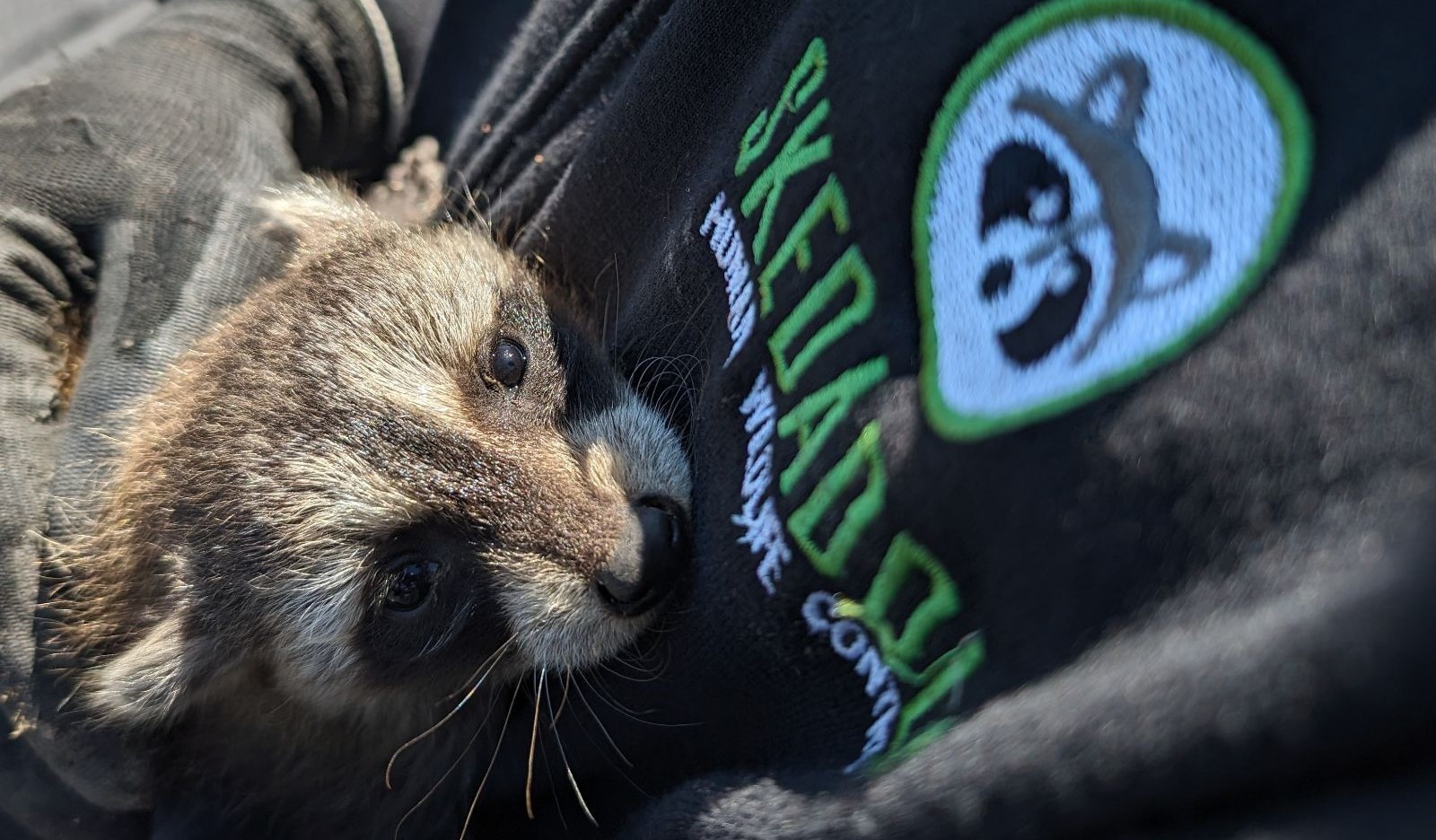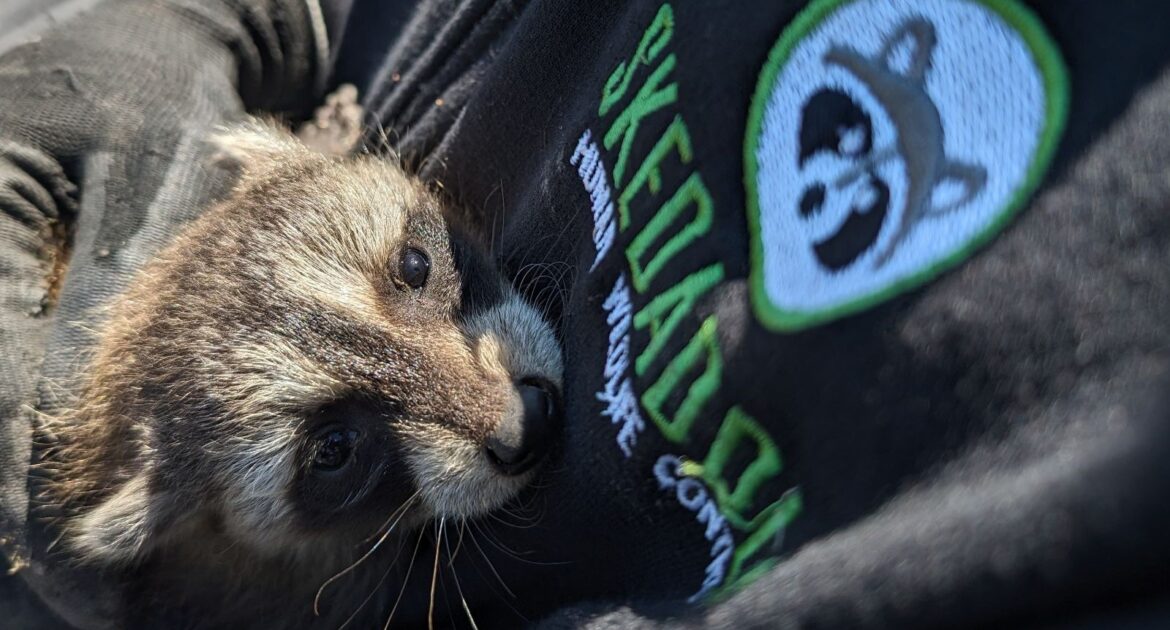Dealing with raccoons in your Minneapolis home isn’t just an inconvenience; it poses serious health risks to your family and pets. These nocturnal animals carry diseases such as rabies, roundworm, and leptospirosis that can easily be transmitted to humans and pets.
Additionally, raccoons are known to damage property as they search for food and shelter, creating unsanitary conditions that can attract other pests. Understanding the dangers associated with raccoons is crucial for maintaining a safe home environment.
If you’ve discovered raccoons on your property, acting quickly and responsibly is essential. Professional raccoon removal services specialize in humane methods to eliminate raccoons, ensuring no harm to the animals or your household. By prioritizing professional intervention, you can prevent the spread of diseases and safeguard your property.
This article will guide you through the potential health issues caused by raccoons and provide expert advice on how to get rid of raccoons effectively and humanely. Trusting Skedaddle’s professionals not only ensures the safety of your loved ones but also aligns with best practices for wildlife control.
Why Raccoons Are Dangerous To Your Health
Raccoons are not just harmless animals; they can pose significant health risks. One of the most concerning issues is the transmission of diseases. Raccoons can carry a variety of illnesses that can spread to humans and pets. Rabies is one of the most well-known diseases that raccoons can transmit. It’s a viral disease that affects the nervous system and is almost always fatal once symptoms appear. If bitten or scratched by a raccoon, immediate medical attention is crucial.
Leptospirosis is another disease that raccoons can carry. This bacterial infection can cause severe kidney damage, liver failure, and even death if not treated promptly. The bacteria are commonly found in raccoon urine and can contaminate water sources. Pets that drink contaminated water are at high risk, and humans can contract the disease through contact with the same water.
Additionally, raccoons can also carry parasites like raccoon roundworms. These parasites can infect humans and cause severe neurological damage. The eggs of these roundworms are often found in raccoon feces, making it risky to have raccoons nest near your home. Children and pets are particularly vulnerable as they might accidentally come into contact with contaminated soil or surfaces.
Risks To Pets
Raccoon infestations in homes pose significant risks not just to humans, but also to pets as well. These can range from health hazards to physical and behavioral dangers. Understanding these risks can help pet owners take proactive measures to protect their furry companions.
Raccoons are known carriers of various diseases that can be transmitted to pets. As stated above, rabies, leptospirosis, and Baylisascaris procyonis, a type of roundworm, can be harmful for humans and pets alike.
Raccoons are wild animals equipped with sharp teeth and claws, making them formidable opponents in any confrontation. If a raccoon feels threatened and decides to defend its nest, it can inflict serious injuries on pets. Dogs, in particular, may be more prone to such encounters due to their natural curiosity and territorial behavior.
Additionally, raccoons often carry fleas, ticks, and mites, which can easily transfer to pets. These parasites can cause various health issues, ranging from skin irritations to more severe illnesses like Lyme disease.
The presence of raccoons in a home can significantly stress pets, leading to behavioral changes. Cats and dogs may become anxious, aggressive, or exhibit destructive behavior due to the perceived threat. This stress can also manifest as changes in eating habits, excessive grooming, or withdrawal.
In some cases, pets might attempt to chase or hunt the raccoons, leading to dangerous confrontations. The noise and activity associated with a raccoon infestation can also disrupt a pet’s routine, contributing to further behavioral problems.
Protecting Your Pets
If you suspect a raccoon infestation, it’s crucial to contact wildlife removal professionals to handle the situation safely and humanely. Additionally, keeping pets’ vaccinations up-to-date, particularly for rabies, is vital in reducing health risks.
By being vigilant and proactive, pet owners can help ensure their furry friends remain safe and healthy, even in the face of potential wildlife intrusions.
Damage To Your Property
Apart from the health risks posed by raccoons, these animals are also notorious for causing significant damage to homes. They are incredibly resourceful and can find their way into attics, basements, and chimneys. Once inside, they can tear apart insulation, chew through electrical wires, and cause structural damage. This not only leads to costly repairs but also creates fire hazards.
Raccoons are also known to raid garbage cans and gardens, leaving a mess behind. They can dig up plants, destroy landscaping, and even damage outdoor furniture. Their quest for food can lead them to break into sheds and garages, causing further damage. The mess they leave behind can attract other pests, creating a larger problem for homeowners.
In addition to physical damage, the presence of raccoons can be extremely stressful for residents. The noise they make while nesting can disrupt sleep and peace of mind. Knowing that these potentially dangerous animals are so close can be a constant source of worry for families.
Are Raccoons Dangerous? Why DIY Removal Is Not Recommended
Attempting to remove raccoons on your own is not a good idea. These animals can be aggressive when cornered and may bite or scratch. Without proper training and equipment, you risk injury and exposure to diseases. Additionally, improper removal methods can lead to further issues, such as the raccoons returning or causing more damage in their attempt to escape.
DIY removal methods can also be inhumane and ineffective. Many homeowners resort to traps or poisons, which can cause unnecessary suffering and do not address the root of the problem. Trapping and relocating raccoons is also illegal in many areas due to the stress it causes the animals and the potential spread of diseases.
Furthermore, handling raccoons without understanding their behavior and biology can lead to unintended consequences. For example, removing a mother raccoon can leave her babies stranded, leading to additional problems. Professional wildlife control experts know how to handle these situations humanely and effectively.
How Skedaddle Handles Raccoon Removal
Skedaddle offers a safe and humane approach to raccoon removal. Our team of experts is trained to deal with raccoons using methods that ensure the safety of both the animals and your family. We begin with a thorough inspection of your property to identify all entry points and nesting areas. This step is crucial in understanding the extent of the problem and planning an effective removal strategy.
Once we have a clear understanding of the situation, we use humane exclusion techniques to remove the raccoons. This involves guiding the animals out of your home and sealing all entry points to prevent them from returning. We do not trap or relocate raccoons, as this can cause them stress and is often ineffective. Our methods ensure that the raccoons are safely removed and cannot re-enter your home.
After the raccoons are removed, we clean and sanitize the affected areas to eliminate any health risks. Raccoon droppings and urine can carry harmful bacteria and parasites, so thorough cleaning is essential. We also repair any damage caused by the raccoons, such as torn insulation or chewed wires, to restore your home to its original condition.
Benefits Of Professional Wildlife Control
Hiring a professional wildlife control service like Skedaddle offers numerous benefits. Firstly, it ensures the safety of your family and pets. Our experts use specialized equipment and techniques to handle raccoons safely, reducing the risk of injury and disease transmission. You can have peace of mind knowing that the problem is being addressed by professionals.
Professional wildlife control is also more effective in the long term. DIY methods may provide temporary relief, but they often fail to address the root of the problem. Skedaddle’s comprehensive approach ensures that raccoons are not only removed but also prevented from returning. This saves you time and money in the long run and reduces the stress associated with ongoing infestations.
Finally, our humane methods align with ethical standards for wildlife control. Skedaddle prioritizes the well-being of the animals while protecting your property. By choosing a professional service, you are supporting humane practices and contributing to the responsible management of wildlife.
Humane and Effective Solutions
Raccoons can pose serious health risks to your family and pets and cause significant damage to your home. Attempting to remove them on your own is risky and often ineffective. Skedaddle offers a safe, humane, and effective solution to raccoon problems. Our comprehensive approach ensures that raccoons are removed and prevented from returning, protecting your home and your loved ones.
Don’t wait until the problem gets worse. Contact Skedaddle today to schedule a consultation and take the first step towards a raccoon-free home. Our team of experts is ready to help you reclaim your peace of mind and protect your property. Act now and experience the Skedaddle difference for yourself.




